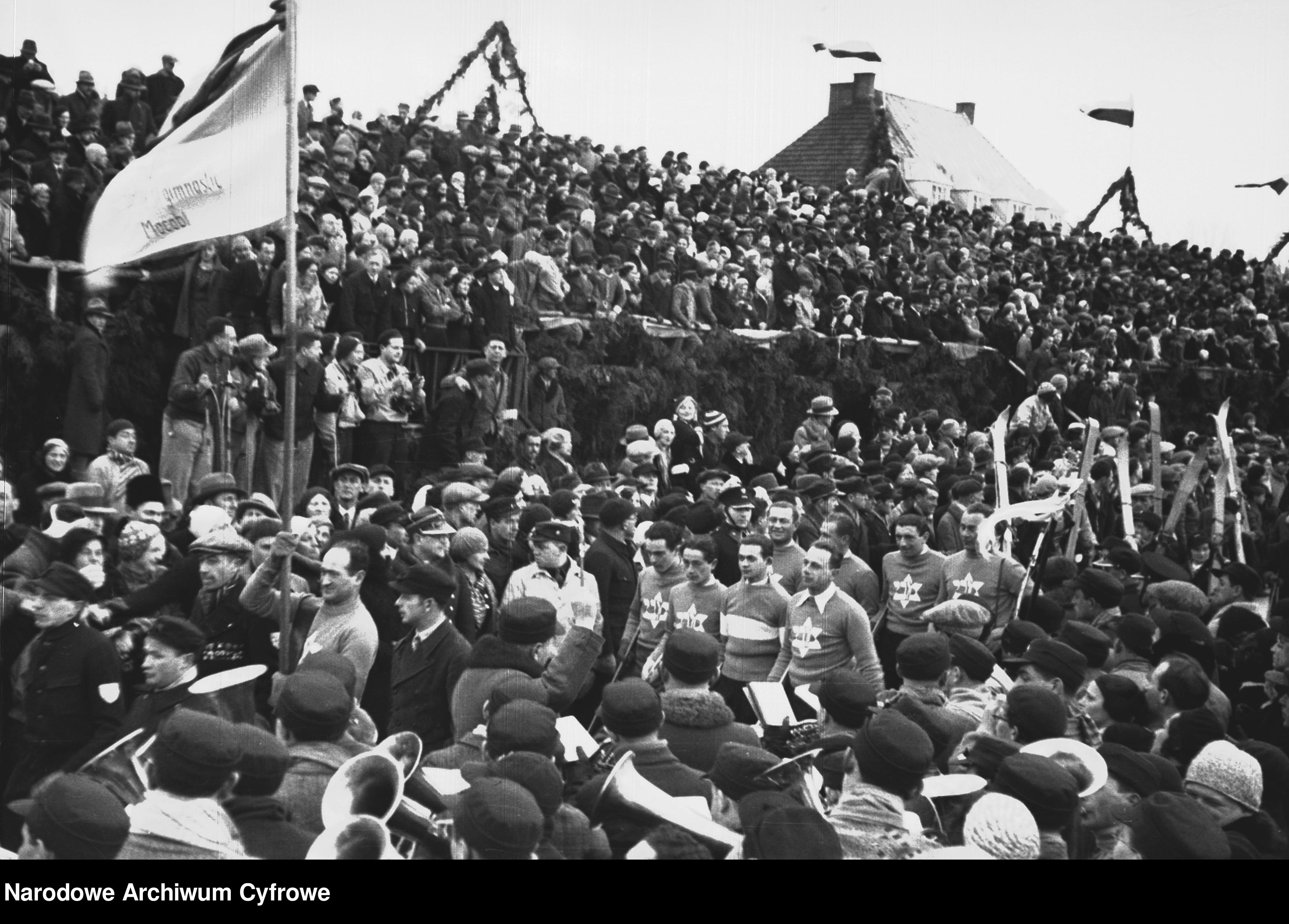|
1st Winter Maccabiah
The 1st Winter Maccabiah ( he, מכביית החורף הראשונה; pl, Pierwsza zimowa Makabiada) was held in Zakopane, Poland from February 2 to 5, 1933. Coincidentally, the opening ceremony took place two days after Adolf Hitler was Adolf Hitler's rise to power, appointed chancellor (January 30, 1933). History Following the successful games of the 1st Maccabiah in 1932, there was a growing interest in winter sports among the European nations. The Maccabi federation of Poland was in charge of organizing the Winter Maccabiah. In the 1930s, that federation was strongest pillar of the Maccabi World Union, consisting of 30,000 Jewish athletes members. The games were met with great opposition; the Gazeta Warszawska newspaper encouraged Polish youth to intervene during the games to prevent the "Jewification of Polish winter sports venues". Opening ceremony The opening ceremony for the games took place at the Stadium in Zakopane on February 2, 1933. Henry Mond, 2nd Baron Melch ... [...More Info...] [...Related Items...] OR: [Wikipedia] [Google] [Baidu] |
Zakopane
Zakopane ( Podhale Goral: ''Zokopane'') is a town in the extreme south of Poland, in the southern part of the Podhale region at the foot of the Tatra Mountains. From 1975 to 1998, it was part of Nowy Sącz Voivodeship; since 1999, it has been part of Lesser Poland Voivodeship. its population was 27,266. Zakopane is a centre of Goral culture and is often referred to as "the winter capital of Poland". It is a popular destination for mountaineering, skiing, and tourism. Zakopane lies near Poland's border with Slovakia, in a valley between the Tatra Mountains and Gubałówka Hill. It can be reached by train or bus from the provincial capital, Kraków, about two hours away. Zakopane lies 800–1,000 metres above sea level and centres on the intersection of its Krupówki and Kościuszko Streets. History The earliest documents mentioning Zakopane date to the 17th century, describing a glade called ''Zakopisko''. In 1676, it was a village of 43 inhabitants. In 1818, Zakopane was a ... [...More Info...] [...Related Items...] OR: [Wikipedia] [Google] [Baidu] |
Henry Mond, 2nd Baron Melchett
Henry Ludwig Mond, 2nd Baron Melchett (10 May 1898 – 22 January 1949) was a British politician, industrialist and financier. Early life and education Henry Mond was born in London, the only son of Alfred Mond, 1st Baron Melchett and his wife Violet (née Goetze). He was educated at Winchester College. In the First World War he was commissioned with the South Wales Borderers on 9 April 1915 and wounded in 1916.Greenaway, Frank (2004) 'Mond family ( 1867-1973)', ''Oxford Dictionary of National Biography'', Oxford University Press, retrieved on 9 March 2007. Business life He then joined some of his father's businesses, becoming a director of Imperial Chemical Industries and serving as deputy chairman from 1940 to 1947. He was also a director of the Mond Nickel Company and Barclays Bank. Politics He served as Member of Parliament for the Isle of Ely 1923-24 as a Liberal. He won against Unionist candidate Max Townley in the 1923 general election with a small majority of 467. In the ... [...More Info...] [...Related Items...] OR: [Wikipedia] [Google] [Baidu] |
1933 In Multi-sport Events
Events January * January 11 – Sir Charles Kingsford Smith makes the first commercial flight between Australia and New Zealand. * January 17 – The United States Congress votes in favour of Philippines independence, against the wishes of U.S. President Herbert Hoover. * January 28 – "Pakistan Declaration": Choudhry Rahmat Ali publishes (in Cambridge, UK) a pamphlet entitled ''Now or Never; Are We to Live or Perish Forever?'', in which he calls for the creation of a Muslim state in northwest India that he calls " Pakstan"; this influences the Pakistan Movement. * January 30 ** National Socialist German Workers Party leader Adolf Hitler is appointed Chancellor of Germany by President of Germany Paul von Hindenburg. ** Édouard Daladier forms a government in France in succession to Joseph Paul-Boncour. He is succeeded on October 26 by Albert Sarraut and on November 26 by Camille Chautemps. February * February 1 – Adolf Hitler gives his "Proclamation to the Germ ... [...More Info...] [...Related Items...] OR: [Wikipedia] [Google] [Baidu] |


